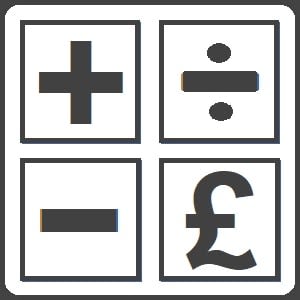Can I Use Personal Bank Account to Pay for Business Expenses?

If you're running a small business in the UK, it’s always a question whether it’s alright to pay for business costs using your personal bank account. Maybe you haven’t set up a business account yet and the bank is still reviewing your application, or maybe you’re just starting a new business venture and weren’t sure if it’s necessary.
The short answer is: Yes, you can. But you can doesn’t mean you should. While HMRC does not prohibit using a personal account to pay for business expenses, mixing personal and business transactions always creates more scrutiny and complexity. It may lead HMRC to question what are personal expenses, whether there are any missing business expenses or revenue, and potentially trigger an investigation. Compliance and complications may become a bigger concern in these situations. Therefore, just because you can, doesn’t always mean you should. To avoid unnecessary complexity and stay compliant, the better answer may be: No, you shouldn’t.
Here’s what you need to know:
What’s Allowed
There are no laws requiring a newly set-up business to have a business account. However, for limited companies, the situation is different. Your company is a separate legal entity, so its money should ideally be kept separate. Using personal funds for company expenses could cause accounting and legal complications if not properly documented.
For sole traders, some are trading under the same name as the taxpayer, and there is no legal requirement to have a separate business account. You can designate one of your personal accounts, or simply use your personal account, as long as you keep clear records showing which transactions relate to the business. This is important for tax purposes.
Why Using a Personal Account Can Be Risky
We’ve said “yes, you can” — so why can it still be risky? Here are the key considerations:
- Messy Recordkeeping
Mixing business and personal transactions can make it hard to track actual business costs. This increases the chance of errors or missing deductible expenses when you file taxes. - Tax Complications
HMRC may question expenses if you can’t clearly show they were for business purposes. You’ll need proper documentation — even more so if your personal and business spending is mixed. - Credit and Liability Risks
Using personal credit cards or accounts can affect your credit score. If you're a company director, blurring the lines may weaken the protection of limited liability — making you more exposed if things go wrong. - Scaling Becomes Harder
What works for small expenses now may not suit a growing business. As things expand, keeping finances separate saves time, avoids risk, and looks more professional — especially to investors or banks.
Best Practice
Even if you’re allowed to use a personal account, opening a dedicated business account is highly recommended. Many high street and digital banks offer free or low-cost business accounts for sole traders and limited companies.
It’s not just about appearances — it helps you stay organised, compliant, and in control of your business finances.
Final Thought
In the early stages of your business, it’s tempting to keep things simple. But small habits now can make a big difference later. If you’re unsure whether something counts as a business expense, or how to record it correctly, it’s worth speaking with an accountant — especially if you’ve used your personal account for mixed purposes.
Keeping things clean from the start helps you avoid surprises when tax time comes around.
Talk to us for more details. Elaga Accountancy is here to help. We are well-experienced in all UK tax matters. If the above sounds new — not necessarily complicated — but interesting to you, there are more topics and areas to pay attention to. Our work saves your time. We focus on what we are good at, so you can focus on what you are good at: growing your business.
You shouldn’t waste time on accounting and tax matters. Talk to Elaga Accountancy, we valuate importance of our clients. What is important to you is important to us. Leave it to us and you should focus on what is important to you, your business. Talk to us now.
#UKTax #SmallBusinessTips #SoleTraderUK #BusinessBankAccount #AccountingAdvice #LimitedCompanyUK #TaxCompliance #UKSelfEmployed #HMRCGuidance #BusinessFinanceUK
Contact Us
Send a Message
Get in touch to discuss with us how we can best assist you.
